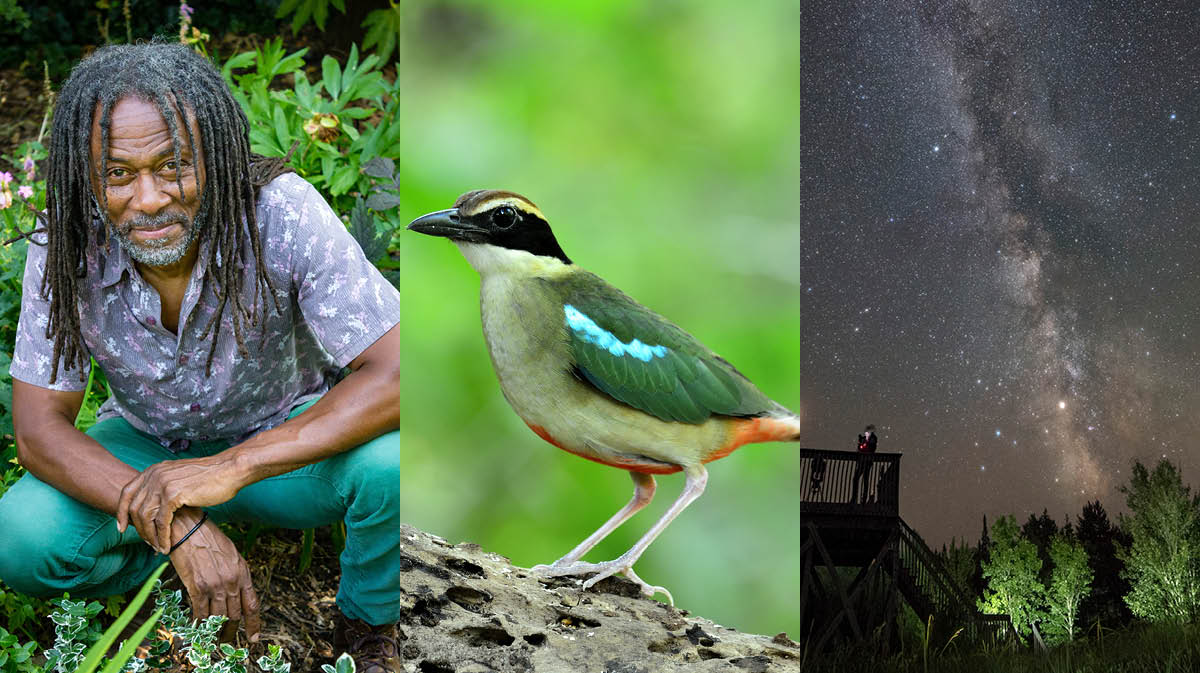It’s with good reason that the theme for this year’s Mental Health Awareness Week [10-16 May, 2021] is nature. For starters, we’re actually designed to be connected to it – human beings are hard-wired to respond to nature physically, psychologically and emotionally. Yet with more than 55%1 of the world’s population living in cities, the opportunity to encounter nature is unnaturally low for so many people.
Even for the 45% of the world that don’t live in a city, it’s all too easy to live a life that is closed off to nature. The Mental Health Foundation maintain that global mental health can be significantly improved if we all establish a stronger connection to the natural world.
But what does ‘connecting with nature’ actually mean, and if you don’t have a strong connection with the natural world, how do you start?
One great way is to pick up a hobby that takes you outdoors. Gardening, for example, is an ideal way to start building a connection with nature, even if you’re a novice. As the saying goes, ‘if you can dig a hole, you can garden.’
The benefits of gardening are much championed by gardeners who highlight that ‘being amongst nature’ is one of the key enjoyment factors. As professional garden designer Danny Clarke – aka The Black Gardener – who appears on the BBC’s Instant Gardener and has been working in horticulture for more than 20 years – puts it “you witness things in nature that last a lifetime [when gardening]. For example, I was in the garden weeding once, and heard this crashing through trees, and looked to my right and there was a sparrow hawk on the ground, eight metres away, with a live blackbird between its talons. It didn’t see me, and it sat there for 30 seconds, and then flew off with the bird still in its talons – what a privilege to have witnessed that.”
Gardening can be physical work as well, meaning that gardeners can benefit from the same rush of endorphins that joggers get from going for a run and it can even help you stay social with your neighbours – for example, exchanging tips on pruning or planting is a great over-the-fence conversation starter.
For those looking to get into gardening for the first time, Danny’s starter tips are “just give it a go, but don’t rush into it, take your time. Gardening slows you down, you have to be patient because things don’t grow immediately, you can’t rush them. You nurture, like your children: water them, feed them, talk to them and they will respond positively. When you finally get into it, you’ll soon find an hour’s gone past and it feels like minutes.”
Gardening may be an ideal entry point to nature, but it can only be taken on by people with access to a garden or an allotment. In the UK, 13% of households don’t have that luxury so more creative thinking is required.2
Birdwatching is one activity that provides an intense connection to nature, without needing your own green space. A walk in the park can become a wildlife adventure simply by sitting on a park bench and being aware of the birds around you.
Arfon Williams of the RPSB, Europe’s largest wildlife conservation charity, says “birdwatching is as much about putting yourself back in a more natural setting as working out which species of bird you’re looking at – it’s good for your mental well-being because, when you really look at nature, you forget the troubles of world. When you’re birdwatching, you have to be quiet, you have to slow down, you have to make time to connect with what you’re watching.”
Once people have gained an awareness of the birds in their area, they soon find an appreciation for their world and how they interact with each other.
Birdwatching is also the ideal activity to help introduce children to nature. Their natural inquisitiveness is satisfied by the dizzying amount of different species that can be found, as well as their varied shapes, sizes and behaviours. Birdwatching can even be turned into a kid-friendly game, such as ‘bird bingo’ where the objective is to spot two of the same species.
Another way to engage with nature is to look to the skies above and to stargaze. The night sky binds us all together under a giant canopy of twinkling lights and stargazing can be an excellent way of clearing one’s mind of life’s daily troubles and stresses. It’s a combination of relaxing and awe-inspiring and it can be extremely reassuring to look up at the night sky and contemplate your place in the world.
You don’t have to have a degree in astrophysics to start stargazing either. Astronomer Alex Nadeau of the Starlight Foundation in Canada says “you don’t need a telescope, just access to the night sky and a field guide…learn about how the sky operates, and that it’s not this boring thing that never moves, and also not this chaotic system you’ll never understand. Then you can get binoculars, they can bring an entirely different world, zooming in and out.”
The vastness of the night sky can be viewed every night but there are plenty of exciting events that you schedule to watch, such as meteor showers or comets passing. Then there’s the unscheduled excitement of witnessing a shooting star.
Despite the vast distances involved between us on earth and the stars in the night sky, stargazing offers a connection to nature that cannot be found in any other outdoor pursuit.
Whether it’s gardening, birdwatching, stargazing or just taking a stroll in a nearby by park or woodland, there’s little doubting the power of fresh air, the great outdoors and catching a glimpse of nature’s finest work. What’s more, it doesn’t require a membership fee, direct debit commitment or entry fee to get started, just step out of your front door and let the therapy begin.
Cigna’s free Body & Mind App is packed with information and resources to help you improve your mental health and well-being. Find out more here
1United Nations - 68% of the world population projected to live in urban areas by 2050, says UN
2Mental Health Foundation - Why Nature is the theme for Mental Health Awareness Week 2021


